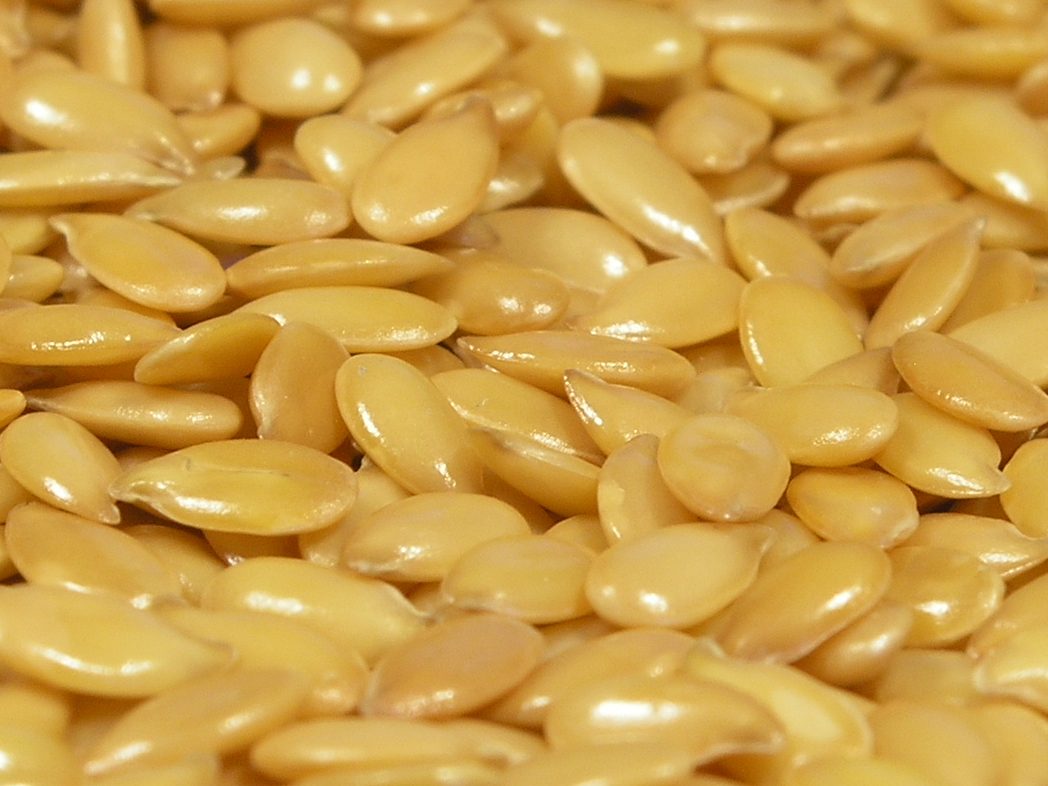Last Updated: 18 September 2022

Figure 1. Brown Flaxseeds.
Flaxseed is the seed of the Flax or Linum usitatissimum plant. Flaxseed is also known as Linseed. Flaxseeds generally come in two varieties: brown or yellow. Both varieties, however, are similar in nutrient composition. Yellow Flaxseeds are sometimes called Solin or Linola. Flaxseed can be ground into a meal or turned into Flaxseed oil.

Figure 2. Yellow Flaxseeds.
Flaxseeds are very high in Omega-3 fatty acids, specifically alpha-Linolenic acid. Flaxseeds are a good source of plant-based Omega-3 fatty acids (as opposed to Fish Oil).
Flaxseeds are a good source of Dietary Fiber. Flaxseeds are taken as a dietary supplement to help with constipation, diabetes, high cholesterol, heart disease, cancer, and several other conditions. Other nutrients in Flaxseeds also include lignans and antioxidants.
Flaxseed is a nutrient-rich food source. Per 7g of ground Flaxseed provides:
Sources and Citations:
* Please be advised: always seek medical consultation if you require medical help or attention. The contents of this Codex are for educational purposes and are not intended to offer personal medical advice.